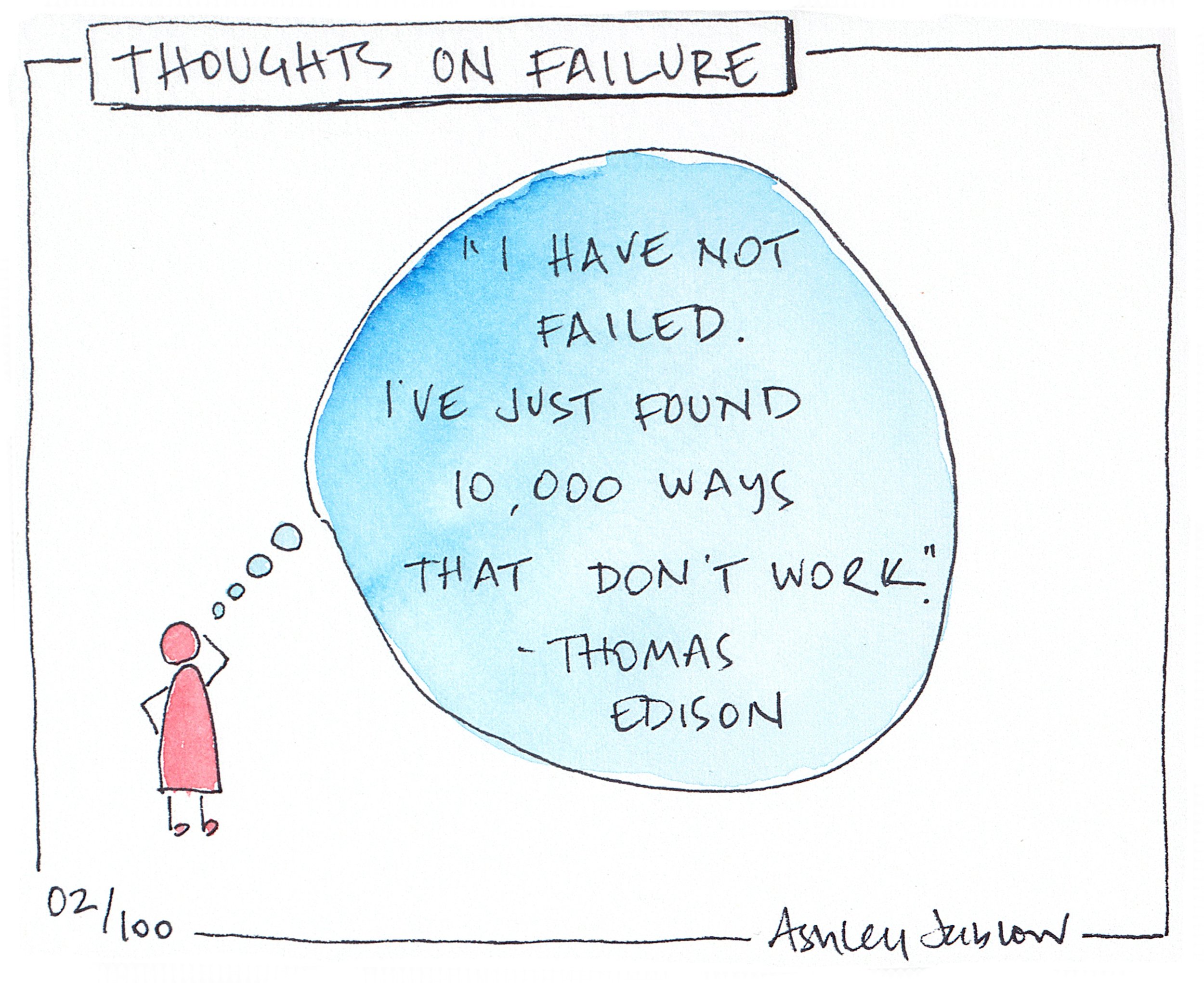A New Way to Think about Failure
Today I want to talk about failure.
Ooof, I know this is a topic that we don’t love to talk about. It’s scary, it feels deep and dark, and for us recovering perfectionists out there, it’s kind of the last thing we’d ever want to subject ourselves to.
But give me three minutes, and I bet I can change how you feel about Failure – and the surprisingly important, positive role it plays when we’re making life or work change.
So let’s start gently by first defining the word Failure. We all know what it feels like to fail. But what does it actually mean?
Merriam-Webster’s Dictionary lists a handful of definitions for the word Failure, two of which are particularly useful here:
#1: Failure (n): A lack of success
In this definition, failure doesn’t mean a public flop. It doesn’t mean humiliation, or being ostracized for sticking your neck out there, or being found out as an imposter. It simply means you weren’t successful.
Here’s where it gets interesting. If failure simply means a lack of success…I feel compelled to ask the question:
Whose definition of success are you following?
When I reflect on the “failures” I’ve collected over the years –
The fancy jobs I didn’t get…
The prestigious universities that rejected me…
The athletic skills that didn’t come naturally to me…
The ways my body didn't live up to my expectations…
– I can see I was holding onto murky or misguided success metrics, often that I’d inherited from other people around me. What about you?
#2: Failure (n): A falling short
This second definition really makes my wheels spin because it reminds me of a conscious mindset shift I made a few years ago:
To embrace iteration.
Big, meaningful change in work or in life never happens in one fell swoop.
It’s less like flipping a switch, and more like a baby learning to walk:
First she crawls.
Then she lifts herself up to stand. And falls over.
Then she finds her balance standing. And falls over.
Then she takes one tentative step forward. And falls over.
Then she takes two…And falls over.
By this logic, shouldn’t we expect to “fall short” at least a few times in our quest towards a goal?
THIS is the part that I find fascinating. As a culture, and as individuals, we’re SO afraid of failure.
And yet – when we stop to break down these two definitions, I’m left wondering:
Could Failure actually signal progress?
Today I invite you to consider these questions:
Where in my life am I worried about failure? What is the impact this worry has on me?
What is the definition of success that matters here? How will I know I’ve achieved it?
What changes – in my thoughts or my actions – when I can start to see failure as a sign that I’m making progress toward my goal?
Onward,


